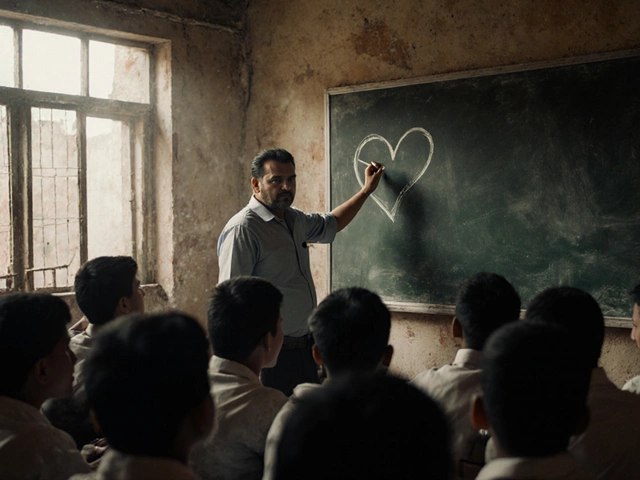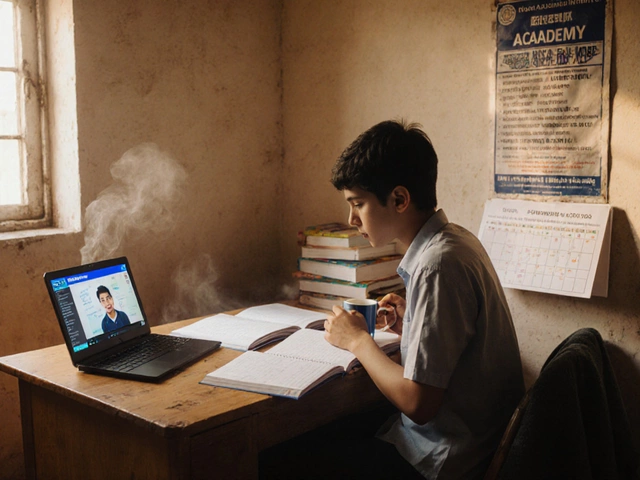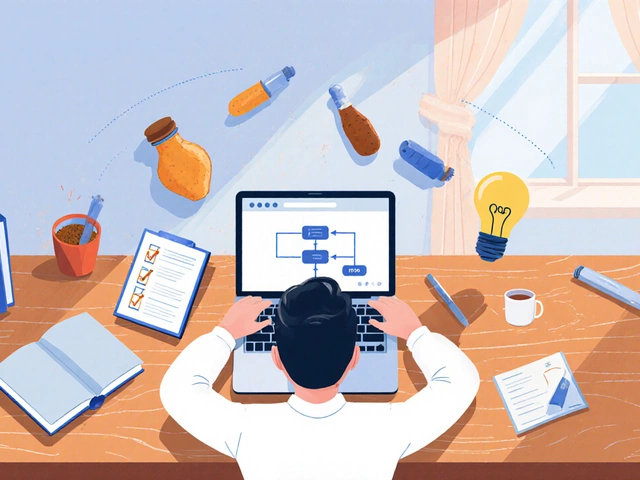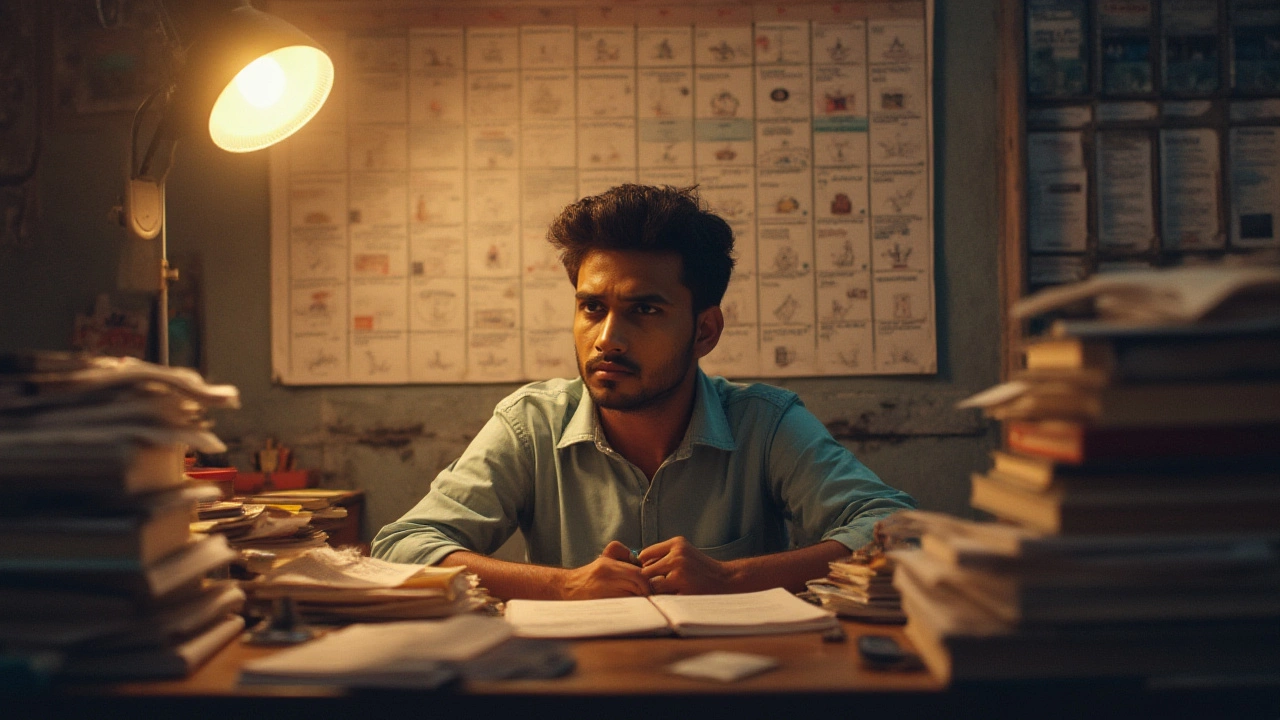
Ever heard someone brag that an exam "ruined their summer?" For millions, that's not an exaggeration—it’s a lived reality. Some exams are so intimidating that forget about straight-A students, even grown adults in the prime of their careers get cold sweats thinking about them. We’re not talking about your average finals or a middle-school pop quiz. Imagine multi-day marathons where failure means starting from scratch, or questions so twisted experts can barely agree on the answers. Which exam stands alone at the top as the hardest of all time? That's exactly what we’re digging into: rare facts, impossible odds, and true tales of mental grit.
The Big Names: Contenders for the Hardest Exam Ever
First up, it's only fair to put some of the most infamous legends on the table. People around the world love to claim their local exams are the worst, but a few contenders get widespread respect (and fear). Topping nearly every list is China’s Gaokao. This college entrance exam is basically a national obsession, with some families starting training before their kids can even spell. Every year, over 10 million Chinese teenagers put everything on hold to battle through its grueling two-day, nine-hour-long ordeal. Gaokao covers math, science, language, and history, but the real killer is the pressure. A high score can mean access to the country’s elite universities and a shot at the kind of future that’s usually out of reach. But low scores? For many, it closes doors permanently.
If you think standardized tests in your country are bad, spare a thought for hopefuls in India taking the IIT-JEE or the "Joint Entrance Examination." This ultra-competitive test is the main gateway to the Indian Institutes of Technology. Applicants study for years, with coaching schools popping up across the country just to help teenagers survive the onslaught. The acceptance rate? Usually under 1%. Even the US Ivy League seems generous compared to that. Questions test not just knowledge but the kind of creative problem-solving that even adults find tough.
Then there’s Japan’s National Center Test, but that’s just the warmup. The real monster is university-specific, like the Tokyo University entrance exam, where the analysis can get so niche it feels like the questions are custom-built to break spirits. France's agrégation exam is another fable—meant for aspiring teachers, but so wildly difficult that passing is a point of national pride. And don’t forget South Korea’s Suneung or CSAT, where the entire country literally falls silent (planes get grounded!) to give students a fair shot at scoring big.
For those in Western countries, the USMLE Step 1 for med students in America, or the notoriously confusing Mensa IQ test, make the cut too, though the life-altering consequences often aren’t as immediate as some of their Asian or European rivals.
What Really Makes an Exam Hard?
Here’s what trips people up in the endless debate about the world’s toughest test: it’s not just about tricky questions. Difficulty is about layers—mental, emotional, and sometimes even physical. For example, China’s Gaokao isn’t just about knowing math formulas or classical Chinese texts. The real beast lies in its life-or-death stakes: one wrong move, and your shot at a dream university is done. According to a 2019 survey by Sina Edu, over 80% of Gaokao takers felt severe anxiety for weeks. Schools even hire "cheering squads" to keep spirits up.
Time pressure is massive too. Candidates for the notoriously wicked CFA (Chartered Financial Analyst) exam, which is a murder in three acts, only have a few minutes per question—for topics that decades-long pros still wrestle with. It's no accident the CFA has a historical pass rate of less than 20% across its three levels. Then there are exams with deliberately low pass rates as a form of gatekeeping: the California Bar Exam often sees pass rates tumble below 40%. In Japan, the CPA exam (Certified Public Accountant) can drag on for years because of its sheer volume and evolving question styles. Not to mention exams like MENSA, which aren’t just about knowledge but uncommon logic and lateral thinking—no amount of rote memorization helps.
Take a look at these basic numbers:
| Exam | Popular Country | Avg. Candidates/Year | Pass Rate |
|---|---|---|---|
| Gaokao | China | 10M+ | ≈ 25% |
| IIT-JEE Advanced | India | ~200,000 | < 1% |
| CFA Level 1 | Global | ~200,000 | ≈ 38% |
| Suneung (CSAT) | South Korea | ~500,000 | No direct cutoff |
| California Bar Exam | USA | ~9,000 | ≈ 40% |
| Agrégation | France | Varies | < 10% |
Still, numbers don’t tell the whole story. Cultural expectations, family dynamics, and the very real risk of burnout play their part. If you mess up your first attempt at some of these, it’s years before you get another shot.
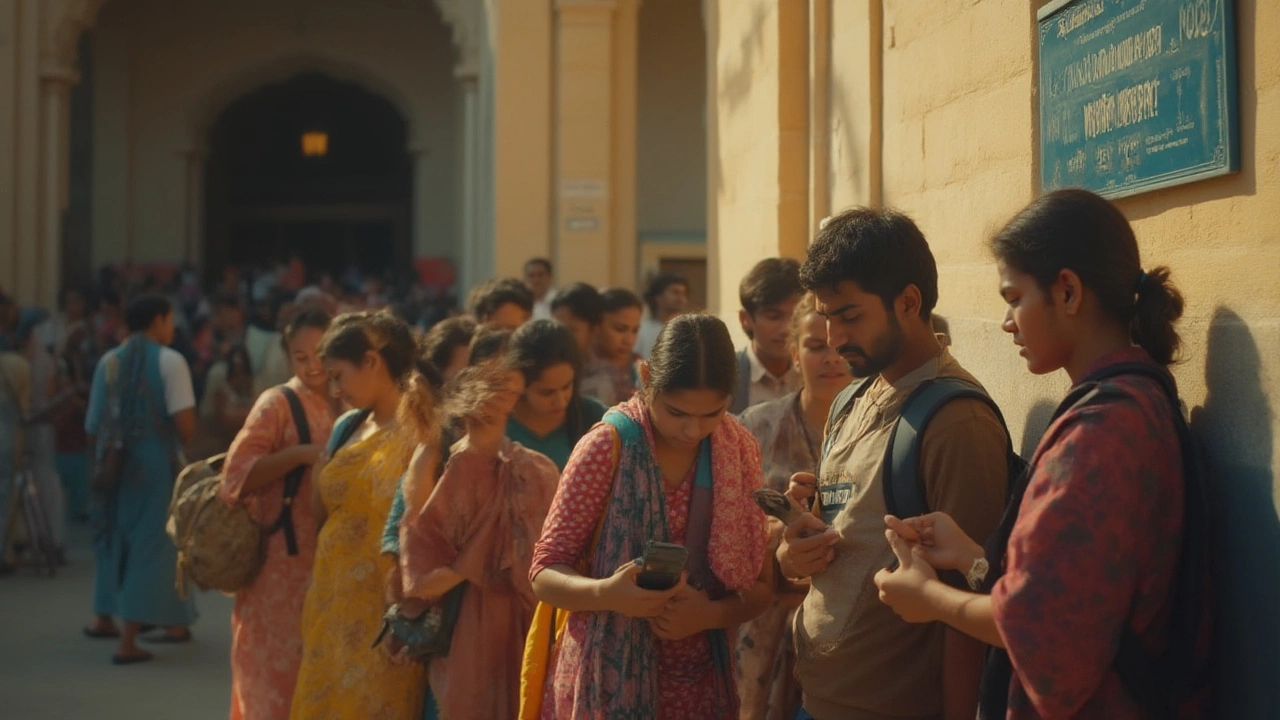
Stories From the Edge: True Tales from Test Survivors
So what’s it actually like to take one of these exams? The stories range from hilarious meltdowns to jaw-dropping wins. When China’s Gaokao season kicks off, some cities see special buses decked out in red banners, dedicated study hotels open up, and police even show up to clear traffic so students aren’t late. It’s no joke—parents light incense for good luck, and in 2018, reporters documented families camping outside exam centers for days.
One student, Xiu Ying, retook Gaokao seven times before making it into her dream school. Her grandparents sold family jewelry so she could attend expensive boot camps, and her younger siblings actually dropped out to let her focus. She’s not unique. Gaokao “repeaters” make up almost a fifth of test-takers every year. In India, you’ll find similar persistence. A boy named Rohan studied 14 hours a day for two years for his crack at the IIT-JEE—and nailed it on try number three. Stories like his aren’t rare: some kids move 1000 miles from home just to train at coaching schools in Kota or Delhi, nicknamed “exam cities.”
The Suneung in Korea is legendary for tears. Parents line up outside centers, clutching prayer beads, and some teachers claim even they can’t answer half the questions. A 2021 survey by Hankyoreh Media found 60% of students needed therapy, either before or after the exam. Then there’s the CFA crowd: no lifelines, no formulas on the test. It’s you, endless math, and a mountain of text in a silent room. Reddit is full of battle stories; one poster wrote that taking the CFA felt like “trying to read the internet from cover to cover in a day—then having someone quiz you on page 127 of a random subreddit.”
Agrégation candidates in France often put lives on pause—one history hopeful, Elise, prepped six hours a day, with weekends lost to 800-page books. She failed, then tried again. “You don’t just pass this exam. You survive it,” she said.
Tips From Survivors: How to Tackle the Toughest Tests
If these stats and stories have you sweating, you’re not alone. But there are some battle-tested tips from survivors that can tip the odds a little in your favor. First off, treat exam prep like marathon training, not a sprint. Folks who start taking care of their sleep and diet a few months out report spikes in mental stamina. If you’re prepping for conceptual monsters like the IIT-JEE, use active recall instead of just rereading textbooks. A study by the Indian Institute of Science found students improved scores by up to 20% simply by quizzing themselves every single day.
Break the syllabus into micro-tasks. Don’t try to “master” everything at once. Short, focused study blocks (think 25–50 minutes) with deliberate breaks actually lead to longer retention, according to an MIT cognitive research group in 2023. Group work helps, but only if your buddies share your focus—otherwise, study groups can turn into chat rooms. Practice with actual, past years’ papers, especially under timed conditions. That’s how Rohan and other IIT-JEE toppers improved their speed and accuracy.
Don’t skip the mental part. Nearly everyone who’s been through Korea’s Suneung or the CFA recommends visualization: try to picture yourself entering the exam room, flipping your paper, and solving the first question with confidence. It might feel silly, but repeating this can calm nerves on the big day. If you’re in a country with coaching centers, pick wisely. Some rely on outdated methods; look for ones where the faculty have cracked the exam themselves or can show recent student success stories.
Last, don’t be afraid of “failure.” Nearly half of all Gaokao and Agrégation passers have failed at least once. One cool hack: after a bad mock test, write down what distracted you or triggered anxiety, then make a plan for next time. The more you treat mistakes as opportunities, the stronger your comeback game.
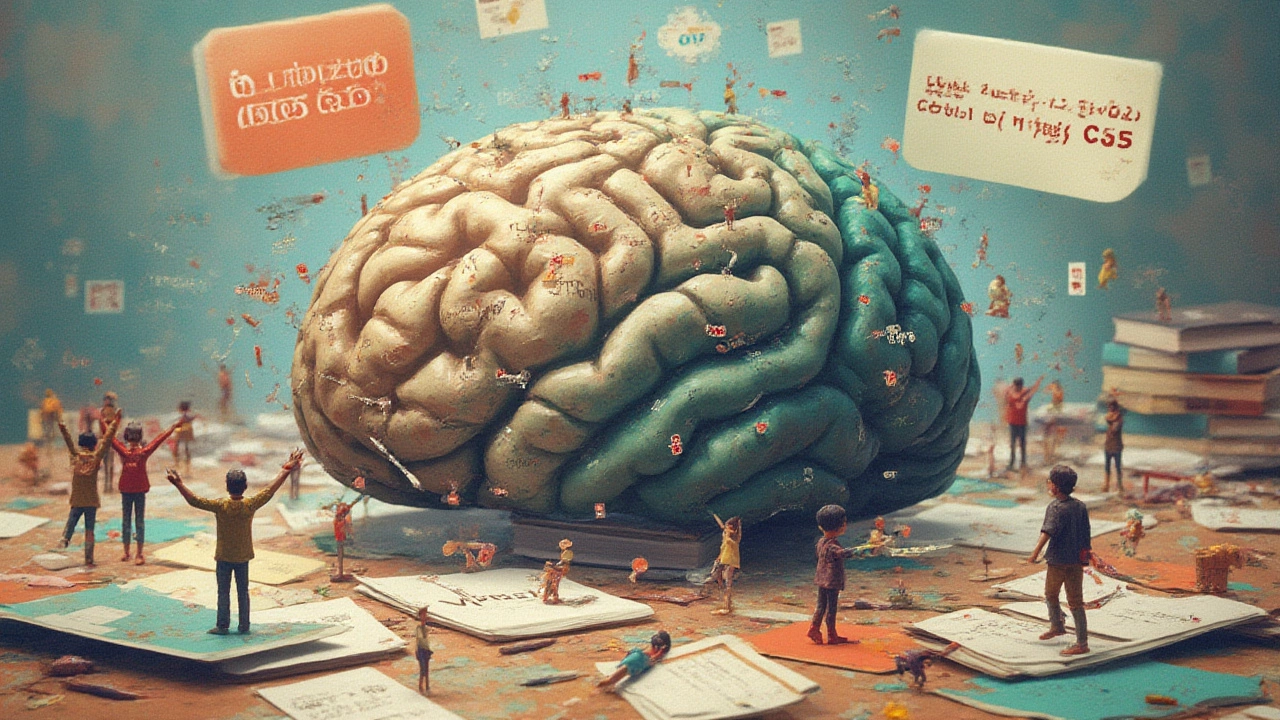
Is There a "Hardest Exam of All Time"?
It’s tempting to crown one champion, but the answer is messier than you think. Is the hardest exam the one with the lowest pass rate, like the IIT-JEE? The one with the most at stake, like China’s Gaokao? Or one that never gets easier, like the annual grind of the CFA or France’s agrégation?
If you judge by sheer numbers, hardest exam contenders like the Gaokao and Suneung are world-famous for a reason. But pressure, culture, and individual horror stories mean that what breaks one person will motivate another. Probably the wildest thing? Some people come back for more, year after year, convinced that glory is just one retake away. It’s that blend of ambition and resilience—plus a pinch of stubbornness—that makes these exams so fascinating and, let’s be honest, a little terrifying.
The best advice from those who’ve made it through unscathed? Prep smart, pace yourself, and remember there’s more to life than a single number on a score sheet. For those about to face these monsters, it’s OK to feel scared. But armed with the right techniques and a tough mindset, even the world’s hardest exam isn’t invincible.



